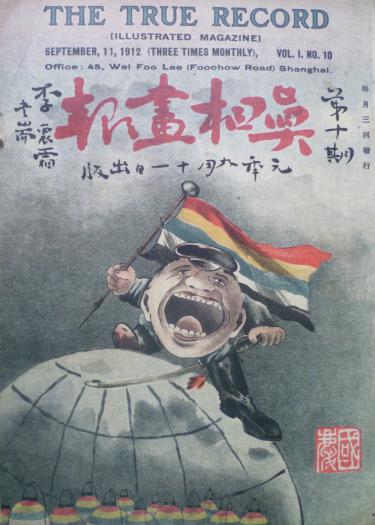Centre for Asian and Transcultural Studies Chinese Apocalyptic Eschatologies, 1800-1950. Typologies, Contexts, and Circulation
- Termin in der Vergangenheit
- Donnerstag, 19. Dezember 2024, 14:30 - 16:00 Uhr
- Centre for Asian and Transcultural Studies (CATS), 010.01.05 (CATS Auditorium), Voßstraße 2, 69115 Heidelberg
- Dr Vincent Goossaert, École Pratique des Hautes Études (France)
This talk examines the modern and contemporary trajectories of apocalyptic ideas in China. It shows how these ideas (according to which the end of the world is near because the gods have decided to annihilate sinful humanity) were particularly widespread during the late Qing (1644-1911) and Republican (1912-1949) China. Natural or man-made disasters such as the Taiping War, the Boxer Rebellion, the 1911 Revolution, the Sino-Japanese War, and so forth were understood in this light as new episodes in a dramatic story of collective damnation and salvation. Contrary to a historiography that emphasises the ruptures of modernity, and in particular the May 4th movement, Dr Goossaert will show that religious books composed at the end of the imperial era (including the eschatological revelations inspired by the Taiping war) continued to be widely reprinted and distributed during the twentieth century, thus maintaining the substratum on which new apocalyptic discourses could flourish.

Adresse
Centre for Asian and Transcultural Studies (CATS)
010.01.05 (CATS Auditorium)
Voßstraße 2
69115 HeidelbergVeranstalter
Veranstaltungstyp
Veranstaltungsreihe
Vortrag
Alle Termine der Veranstaltung 'Apocalypse Now. Time, Historicity and Worlds After'
Lecture Series
While periodization — the partition of time into segments with a specific beginning and end — is integral to historical method, it cannot be dissociated from a wider reflection on a key issue: the relation between emic time (time as perceived by historical actors) and etic time (time as established by the scholar’s historical narrative). The relation between emic and etic times is an essential methodological question within human, social, and even natural sciences. This lecture series looks at this this question through a particular lens: the “end of times” or “apocalypses.” How do historical actors perceive it? What happens to historiographical narratives when actors talk about the future as the “end” of time? How has such a vision of the future shaped narratives and periodization schemes?
By focusing on “ends of times” and “apocalypse”, the tensions between time, temporalities and time horizons are to be discussed, both methodologically and empirically, in specific contexts. The three main areas are: 1) political history — the history of revolutions; 2) religious history — the history of last judgements and revelations; and 3) natural history — the history of pandemics, cataclysms and disasters. The first block (political history) will discuss the link between revolution and the end of time, starting with revolutions at the turn of the eighteenth and nineteenth centuries, including the Russian and Chinese revolutions. The second block (religious history) will consider perceptions of the end of time within some of the main religions, considering different takes on apocalyptic revelations, universal floods, millenarianisms and messianic movements. Finally, the third block (natural history) will discuss natural disasters and epidemics, and will feature the controversies over geological eras (such as the Anthropocene) and collapsology.